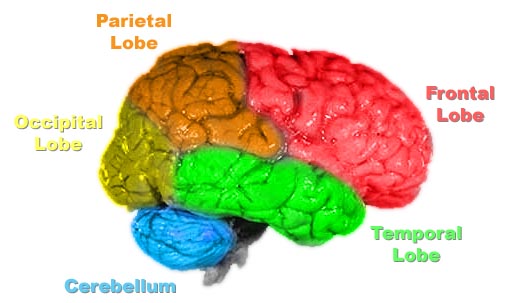The Biggest Habit, The Inflexible Mind: 3 Scenarios
THE BIGGEST HABIT, THE INFLEXIBLE MIND: 3 SCENARIOS (ISSUE 82)
By Diane Gold
When we think of habits, we usually miss the most common one, the inflexible mind. From a very early age, we take comfort in learning new things and the fact that they are familiar to us. The fact that we like this feeling of belonging stays with us for most of our lives. We go to the same market because we’re convinced the food is adequate and the staff will greet us with a smile. We go to the same place to work out because we know the machines and the people who go there. And we even shop in the same stores because we have done so in the past.
We begin to build these patterns of repetitious behavior called habits that just creep into our lives through repetition.
 An MIT study last October at the McGovern Institute For Brain Research, authored by Kyle Smith, Ann Graybiel, et al, showed how rats continued their learned habitual behavior even when their reward was removed.
An MIT study last October at the McGovern Institute For Brain Research, authored by Kyle Smith, Ann Graybiel, et al, showed how rats continued their learned habitual behavior even when their reward was removed.
Fascinatingly, it also showed how the researchers were able to remove the habit by disrupting the infralimbic cortex (a part of the prefrontal cortex) needed for habit development.
The presence of light was enough to “turn off” the habit. The basal ganglia, in the middle front brain, holds the coding that is created by habits in neural pathways, almost like tagging or but the infralimbic cortex, alone, seems to control the execution of the habit. Great news for people who want to change a habit.
To follow are three scenarios that are common to most of us. They are pretty universal:
1) HAVING SELF-ESTEEM
 Often times, we put tremendous value on what we do. If we write, we believe our writing helps the readership. If we compose, we are enamored with our own work. If we teach, we think we are the best. If we are fighters, we believe we are the best.
Often times, we put tremendous value on what we do. If we write, we believe our writing helps the readership. If we compose, we are enamored with our own work. If we teach, we think we are the best. If we are fighters, we believe we are the best.
It would serve us well to realize that we can learn about ourselves and that we always have something to learn. And that demeaning others does not give us power, even if it feels that way.
 2) PASSING JUDGMENT
2) PASSING JUDGMENT
How many times do we compare ourselves to someone else? We believe that our writing is better than their dancing? We really believe this because we have told this to ourselves or others have told it to us. If we have not walked in the shoes of the next person, it is difficult to conclude someone else’s human prowess.
It’s important that we refrain from judging others unless we have had a personally negative interaction with the person.
3) LIVING FOR EXTERNAL RECOGNITION
Unlike the other two scenarios above, this one has to do with using others for our self-motivation. We actually get our energy from the thrill of being recognized by others rather than the satisfaction that usually comes from valuing what we do.
I have seen people so driven by looking for recognition from others that their entire careers would stop in their tracks if they didn’t get it.
CONCLUSION
Knowing our own minds takes work and practice. In order to allow the mind to be flexible, we have to change our automatic reactions. By doing so, we change the neural pathways we have created and design new ones that will serve us well on the journey away from inflexible mind and toward flexible mind.
Here are three ACTION STEPS. They only require noticing yourself.
1) COMPARE
The next time we are evaluating ourselves, stop and think that our work is no more important than the next person’s work to that person and that each deserves recognition.
2) CONSIDER
Think of three ways to improve the work that you do, and make those changes. Then realize that this type of self-improvement upgrade is important on a regular basis, even if it means making big personal changes.
3) STOP AND CHANGE BEHAVIORS
When we speak about money, politics and religion; most of us have strong opinions. We are warned that these subjects are taboo I recall the first time I was having a political discussion with a friend, I was quite surprised. She became very impassioned and very closed minded to listen to anything other than that which she had concluded.
We are all like this at one time or other about some subject. This is the inflexible mind. Next time you see this in yourself, smile and stop and notice the inflexible mind. Laugh at yourself, and keep the mind open. This will become the habit.
__________
__________
 In order for these action steps to take shape, we must repeat them over and over, each time we have the opportunity. The idea is to change the habit of inflexible mind we have instilled in ourselves, and instill a new one, the habit of flexible mind. It requires self-mind training, as with any habit!
In order for these action steps to take shape, we must repeat them over and over, each time we have the opportunity. The idea is to change the habit of inflexible mind we have instilled in ourselves, and instill a new one, the habit of flexible mind. It requires self-mind training, as with any habit!
____________________________________________________________________
BRAND NEW ~ Q & A
FREE PASS
 Have a question about a habit, nutrition, plant-based nutrition, tai chi, music, parenting, life? Ask here and, if we don’t know the answer, we will ask our qualified panelists and professional colleagues to help get you your answer.
Have a question about a habit, nutrition, plant-based nutrition, tai chi, music, parenting, life? Ask here and, if we don’t know the answer, we will ask our qualified panelists and professional colleagues to help get you your answer.
Click the image to ask your question.
____________________________________________________________________
FEEDBACK
Please leave a comment and LIKE.
DIANE GOLD, AUTHOR
Diane Gold, Founder of Warriors of Weight, Turning Habits Into Health, is a mentor in tai chi, kung fu and meditation, a music, fitness and stress expert, dedicated mom, studying plant-based nutrition.
She walks with an open way about her. If someone questions the way that she believes, she takes them seriously and is curious to know why their opinion differs from hers. She says,
“We do not have the right to demean others. We do have the duty to protect them. Our minds, though naturally inflexible, can be changed.with repetition. We need to grab that tiny moment before the old habit kicks in where the new one has the chance to emerge with new behavior. Try it; it is fairly straight forward.
“Good luck.”







